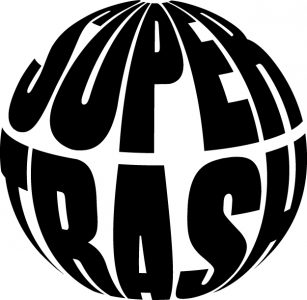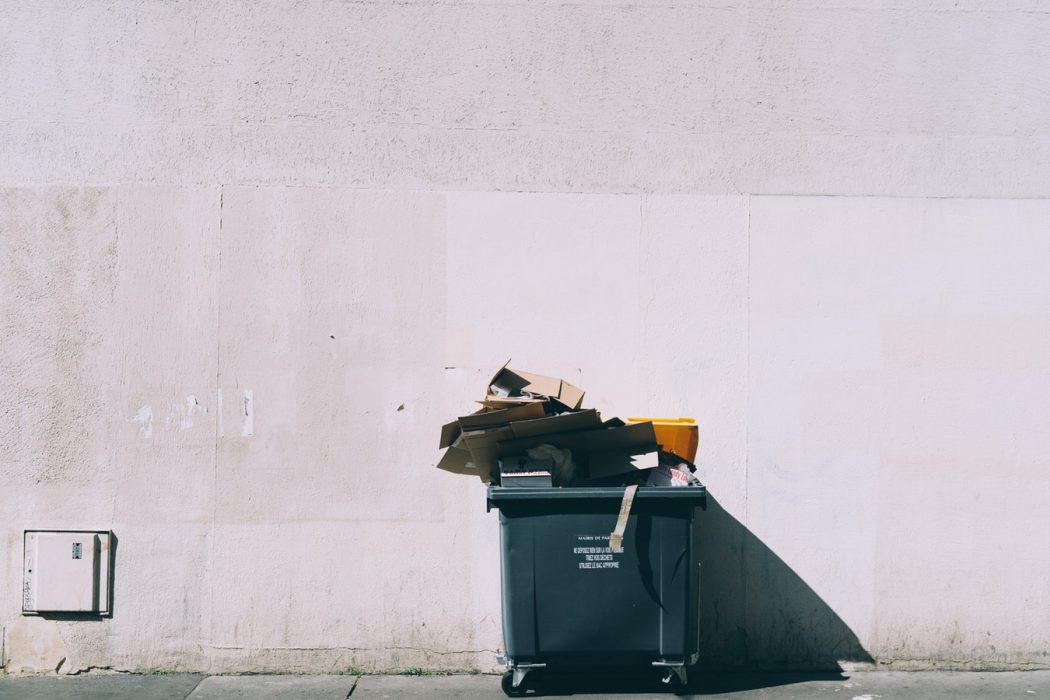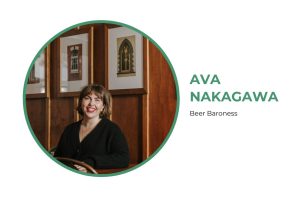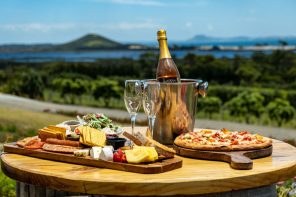In this four-part series, we look at reducing, reusing, and recycling in the foodservice industry. We talk to some of New Zealand's cleanest and greenest and find out what they are doing to keep themselves sustainable.
PART FOUR: Recycle.
with Supertrash and Little Bird Organics.
Supertrash was started in 2009 by a man, and a singular ute. Now, Supertrash collects over 40,000 kilograms of organic waste each week. Supertrash services every part of the foodservice industry; from cafes and restaurants to food courts, hotels, tertiary institutes, schools and caterers. Since March of 2012, Supertrash has saved over 5000 tonnes of waste from reaching landfill. “Sustainability is ingrained in the mentality of our team,” said Steve Rickerby, founder and managing director of Supertrash (also, the man mentioned above with a ute). “We are always considering ways to minimise our waste output and maximise recyclability.”
“The foodservice industry is one of our core focusses and where a lot of Auckland’s organic waste is created. This makes the foodservice industry a very important component when it comes to achieving maximum waste diversion.”
“We actively engage with our hospitality customers to ensure that the staff understand waste flows and why it is important to separate waste. Transparency and education around what happens to waste in New Zealand are key factors in creating motivation to divert waste away from landfill.”
“There are actually seven R’s—not just reduce, reuse, and recycle—and they’re in a hierarchy of importance: refuse, reduce, reuse, recycle, repair, repurpose and rot (compost). When people understand how these choices impact the environment, they can assess their processes and see how you can apply these waste minimisation practices at every stage.”
Recycling in New Zealand is not as efficient as it should be. We lack the capacity to mass recycle and repurpose materials effectively. “The starting point is to implement product stewardship schemes and create products and markets for the recycled materials, as well as building the infrastructure to process in relatively small quantities locally.” On top of that, it is essential that consumers are both encouraged and educated about recycling schemes and how waste can be minimised. Packaging, for instance, has alternatives. “Recyclable and compostable is awesome but minimal is always best. Offering customers a way to return their packaging for it to be dealt with correctly is a really interactive way to educate the wider public and maximise waste being dealt with correctly.”
“We need to make sustainable waste management an industry standard. People are going to have to consider different ways to deal with waste.”

Solving the issue of recycling as a café or restaurant may not seem difficult, but steps can be taken to ensure that if the issue can’t be solved, it can be minimised. At Little Bird Organics, they are putting their best foot forward to maximise their recyclable and sustainable solutions to operating a foodservice business. Megan May, founder of Little Bird Organics, said “It’s hard to have zero waste, but we try to minimise our impact on the environment wherever possible.”
“All of our takeaway packaging is compostable, and we use paper straws. With our in-house and takeaway smoothies, we always ask customers whether they would like a straw or not—this also helps reduce waste. We encourage our customers to bring in their own containers and cups too.”
Talking about the broader problem of the lack of an efficient circular waste economy within New Zealand lead us back to the idea of collaboration. “It’s important to look at the whole journey of the item you are recycling. New Zealand should be focussed on a more closed-loop system to minimise our impact.”
“The biggest way we can reduce the problem is for all of us to take ownership of the issue and shift our values around waste. Do what we can as individual restaurants, businesses and households until local and central government catch up to support it.”
“With everything, I think it’s important to ask yourself, ‘do I really need this?’ The easiest way to reduce our impact is by reducing how much we consume. That’s why we always suggest changing just one thing at a time, and overall, those little things will create big change.”

Megan May.
Reducing, reusing and recycling is a large part of the answer to the sustainability question. However, the solution cannot be achieved by any one foodservice business or singular manufacturer. The industry as a whole needs to collaborate and look to implement a change in both practice and ideology. Consumers are demanding goods that are ethically and responsibly sourced, and suppliers are looking to reduce the impact that business has on the environment, so why is there not a more concerted effort to solve the issue? Taking small steps is one way of implementing change within a singular business, but creating a connectivity to discuss and attack the matter as an industry is the only way that the foodservice industry can effectively create a circular waste economy.
What we have learned from interacting with several businesses across the industry is that change is both desired and needed. However, it seems as though there needs to be a widespread acknowledgement that as an industry, more is still required. On top of that, words and ethics need to be actioned upon. Following through and making sure that waste is responsibly dealt with is critical.
The amount of food waste and packaging need reduction; schemes to reuse food, or improve the industry through the repurposing of materials need to become commonplace; and personal responsibility for recycling, as well as facilities, need taking care of. Part of this issue lies outside of the foodservice industry, but as a large part of the New Zealand economy, the say that we have in influencing the infrastructure required to address the problem is monumental. Working within the industry, and with the consumer, to produce a significant enough voice to instrument change is tangible, and what we can work towards for now.
When a crowd begins taking small steps, momentum increases, and the mob begins rolling.
![]()
PART ONE: http://restaurantandcafe.co.nz/reduce-reuse-recycle-part-one/
PART TWO: http://restaurantandcafe.co.nz/reduce-reuse-recycle-part-two/
PART THREE: http://restaurantandcafe.co.nz/reduce-reuse-recycle-part-three/






